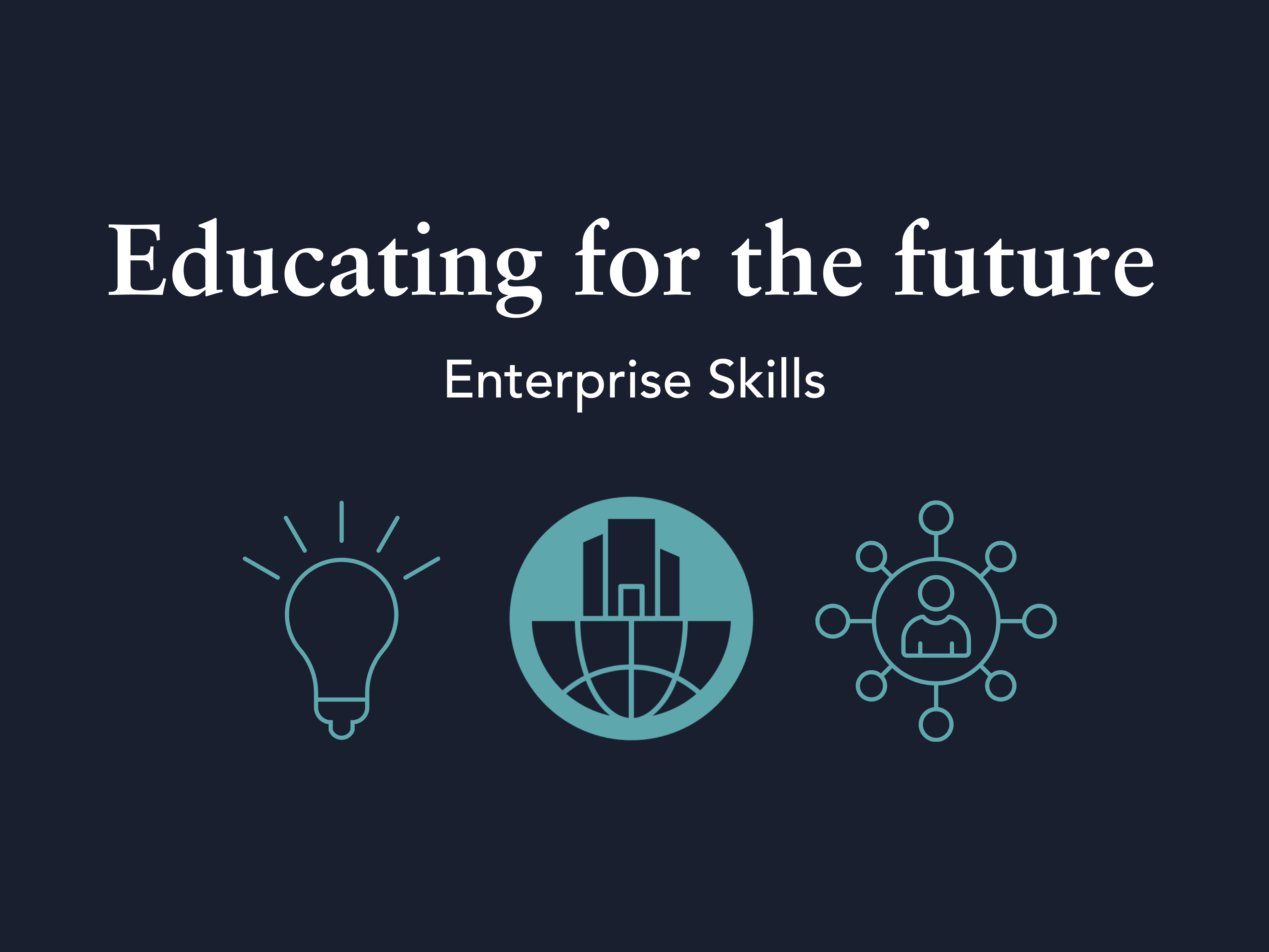The challenge
- Environmental challenges – such as climate change and depleting natural resources
- Economic challenges – such as globalisation and technological innovations which pose security and privacy risks
- Social challenges – including growing populations, urbanisation, and cultural and social impacts.
Why are Enterprise Skills important in education?

“Through encouraging students to develop their understanding of Entrepreneurship, Global Citizenship and Digital Literacy, we ensure they have the knowledge and skills needed to transition from education to the world of work. These skills allow our students to develop enterprise-focused traits, such as resilience, risk-taking, perspective-taking and self-belief, traits that are not only needed by students who go on to set up their own businesses but also those joining established organisations, aiming to drive innovation and long-term success.”
Craig Wilson
Executive Principal, CATS Global Schools
An overview of the three ‘Enterprise Skills’
Entrepreneurship
Building a sustainable enterprise at CSVPA

Digital Literacy
Experiencing a world-class information platform at CATS London
Global Citizenship
Developing a global perspective at CATS Canterbury

“Remembering the Holocaust and other genocides is so important. It’s an essential part of any young person’s understanding of the global political community we share and our place within it. So, it was very pleasing to see how sensitively and intelligently our students engaged with our commemoration event.”
Mark Hopkinson
Teacher, CATS Canterbury
